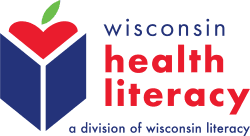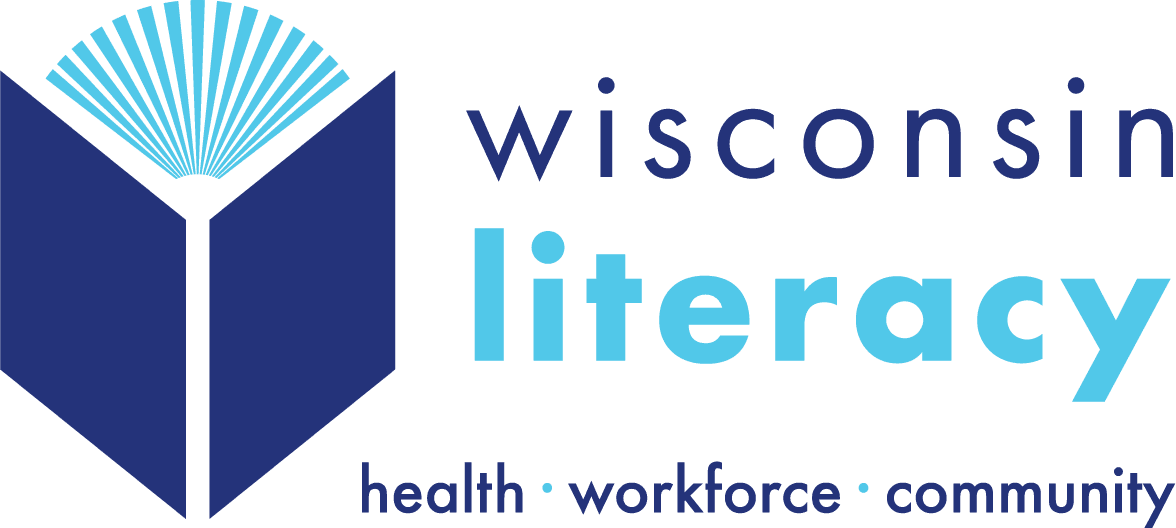Our News
Wisconsin Health Literacy is joining 8 other states (Minnesota, Nebraska, Kansas, Texas, Arkansas, Missouri, Ohio, and Michigan) to hold a collaborative Summit that brings together our diverse health literacy approaches, experiences, and strategies.
In honor of October being a time to formally recognize the importance of health literacy, the Governor has declared October 2023 as Health Literacy Month in Wisconsin.
WHL is pleased to share new mission and vision statements, which were adopted to better align with the activities and goals of the division:
Mission: Advance health equity through health literacy in organizations and communities.
Vision: All people have the skills and a fair opportunity to be healthy.
A unique partnership between Wisconsin Health Literacy’s Vaccine Community Outreach (VCO) initiative and the Eau Claire-based Black and Brown Womyn Power Coalition (BBWPC) resulted in a dramatic increase in COVID-19 vaccination rates among the Hmong population.
We are very grateful for the support of the Wisconsin Department of Health Services and for the recognition from Governor Evers. Our member agencies and countless other non-profits and public health workers across Wisconsin are working together to make vaccinations and health care more equitable.
A statewide organization that aims to raise awareness about health literacy is next Monday hosting a vaccine community outreach event to help ensure that the public has access to reliable and accurate information about COVID shots.
This includes smart phones in hand most hours of the day, preordering, contactless pickups, online signups for more reliable PCR tests, online signups for vaccinations, scanning QR codes everywhere, telehealth visits, online health portals, etc. And, for many of us, this is on top of being in online meetings most of the day looking at a screen.
Wisconsin Literacy and Wisconsin Health Literacy were interviewed on WORT 89.9 FM Radio for the "8 O'Clock Buzz." They discussed how adult literacy changes lives and the importance of health literacy for better health outcomes.
The Rural Monitor article covers the importance of using plain language instead of medical jargon to create more equitable healthcare.
“Providers can forget to translate their information back into plain language for their patients,” Stan Hudson, Health Literacy Director of Wisconsin Health Literacy said. “This lends to the creation of an unequal system of information-sharing in healthcare."
In this issue, we feature community programs and opportunities; digital literacy workshops; talking about COVID vaccines in your community; medication label initiative; and health insurance literacy virtual mini-series.
Thank you, Augusta Public Library, for hosting a free Wisconsin Health Literacy virtual "Let's Talk About Pain Medicine" workshop 11/4. Thanks, WQOW News 18, for sharing how to safely dispose of leftover medication with the general public.
In this eNewsletter, we shared resources for talking about the COVID Vaccine in your community, welcomed to Bhumi Khambholja to our team, and promoted Achieve Database training.
Wisconsin Literacy received a COVID-19 Community Outreach Grant from the Wisconsin Department of Health Services. The goal of the project will be to address COVID-19 information, misinformation and vaccination hesitancy in 35 communities statewide.
The Health Literacy Project Manager will help provide advice, technical assistance, and leadership in planning, developing, and evaluating statewide health literacy strategies and interventions directed toward a broad audience including health and social service professionals, literacy professionals, and healthcare consumers. The Project Manager will also assist in developing and implementing fee-for-service contracts.
Go to the full position description for more information and to apply by March 19, 2021
Listen to the program broadcast where you’ll hear from:
-- one of our library partners about how our Health Online: Finding Information You Can Trust workshop impacted their community; and
-- Dr. Bethany Howlett about online information related to COVID and resources that can help you.
In this issue, you will read about our new material for high school classes, medication label project extension, and our program supporting unpaid caregivers.
The COVID-19 pandemic has highlighted the widening digital divide and the increasing concern with accessing credible health information.
Based on the success of Wisconsin Health Literacy’s (WHL) Health Online: Finding Information You Can Trust, Network of the National Library of Medicine (NNLM) will work with WHL to develop videos, program guides, and virtual learning series to address the digital divide nationally.
Thanks to the gracious support of RRF Foundation for Aging initiative, Wisconsin Health Literacy (WHL) is excited to announce a new virtual workshop series to support and strengthen the health literacy of our many unpaid caregivers across Wisconsin.
Wisconsin Health Literacy on "Fond du Lac Today" KFIZ, listen to this segment on our past and recent health literacy work including on COVID-19 at https://bit.ly/3nKKM1l.
Thank you to our funders, Medical College of Wisconsin, NNLM Greater Midwest Region, & Wisconsin Partnership Program University of Wisconsin School of Medicine and Public Health.
In this issue, celebrate 10 Years of Wisconsin Health Literacy, learn 8 key steps for prescription medication label implementation, discover our 2020 Programming, and personalize training opportunities for your team.
With the COVID-19 pandemic, health care services, not just health information, moved online. Accessing credible health information is an increasing concern. WHL developed a curriculum to help everyone find reliable health information online called Health Online: Finding Information You Can Trust.
In this issue, learn about the COVID-19 Resource Page, the Celebration of Literacy Goes Virtual, the Wisconsin Health Literacy Event Updates, the 2020 Workshop Updates, and Personalized Training Opportunities for Your Team.
Updates to our project making prescription medication labels easier to understand.
In this challenging time, staff, tutors, and learners must have accurate health information about COVID-19.

